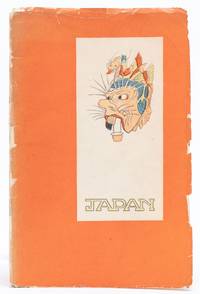first edition
1848 · London
by Thackeray, William Makepeace
London: Bradbury & Evans, 1848. First edition. Very Good +. First issue with the heading on p. 1 in rustic type, the advertisement for "The Great Hogarty Diamond" before the frontis and the illustration of "the marquis of Steyne" on p. 336 (later suppressed). Illustrated by the author in 40 steel engraved plates and numerous woodcuts throughout the text. A Very Good+ copy in the publisher's original deluxe cloth (with extra gilt decorations to the spine and boards). Minor wear to the spine ends and corners, some bubbling to the cloth, likely reacting to moisture. Inner rear hinge repaired. Bookplate and early owner's name on the front free end papers. Housed in a blue, quarter-leather slipcase with chemise. A handsome copy overall.
Considered by its author to be a novel without a hero, Vanity Fair follows the path of the social climbing Becky Sharp as she seeks to improve her position within the Victorian social strata. One of literature's most important early iterations of the female anti-hero, Miss Sharp helped to expose the truth that women were not merely domesticated angels but could be just as ambitious and driven as their male counterparts; and her foil Amelia reveals that even an apparent paragon of femininity was imperfect. A contemporary reviewer noted "Thakeray's theory of characterization proceeds generally on the assumtion that the acts of men and women are directed not by principle but by instincts...There is not a person in the book who excites the reader's respect, and not one who fails to excite his interest. The morbid quickness of the author's perceptions of the selfish element, even in his few amiable characters, is a constant source of surprise. The novel not only has no hero, but implies the non-existence of heroism" (Contemporary Atlantic Monthly review). A literary tour de force, transformed into a popular film starring Reese Witherspoon. Very Good +. (Inventory #: 6842)
Considered by its author to be a novel without a hero, Vanity Fair follows the path of the social climbing Becky Sharp as she seeks to improve her position within the Victorian social strata. One of literature's most important early iterations of the female anti-hero, Miss Sharp helped to expose the truth that women were not merely domesticated angels but could be just as ambitious and driven as their male counterparts; and her foil Amelia reveals that even an apparent paragon of femininity was imperfect. A contemporary reviewer noted "Thakeray's theory of characterization proceeds generally on the assumtion that the acts of men and women are directed not by principle but by instincts...There is not a person in the book who excites the reader's respect, and not one who fails to excite his interest. The morbid quickness of the author's perceptions of the selfish element, even in his few amiable characters, is a constant source of surprise. The novel not only has no hero, but implies the non-existence of heroism" (Contemporary Atlantic Monthly review). A literary tour de force, transformed into a popular film starring Reese Witherspoon. Very Good +. (Inventory #: 6842)












